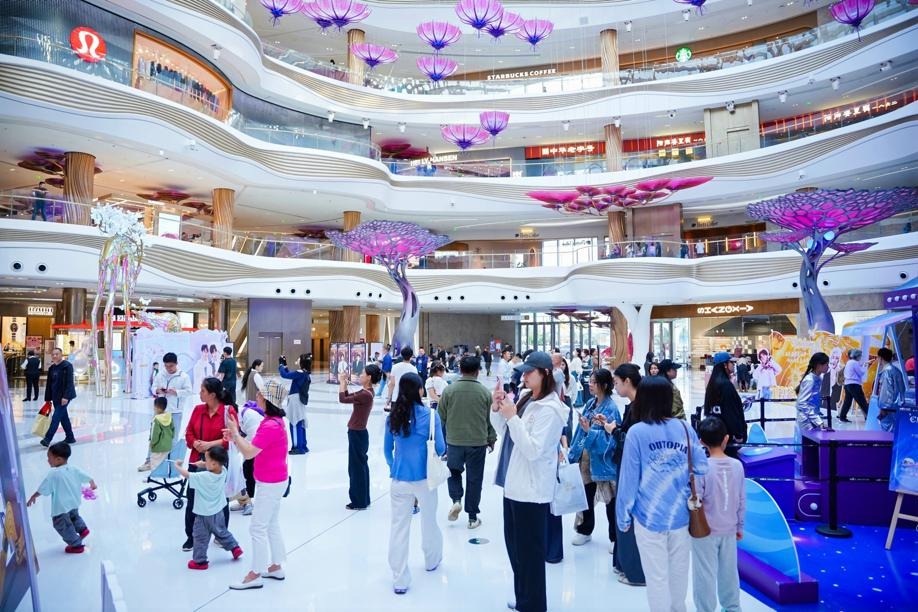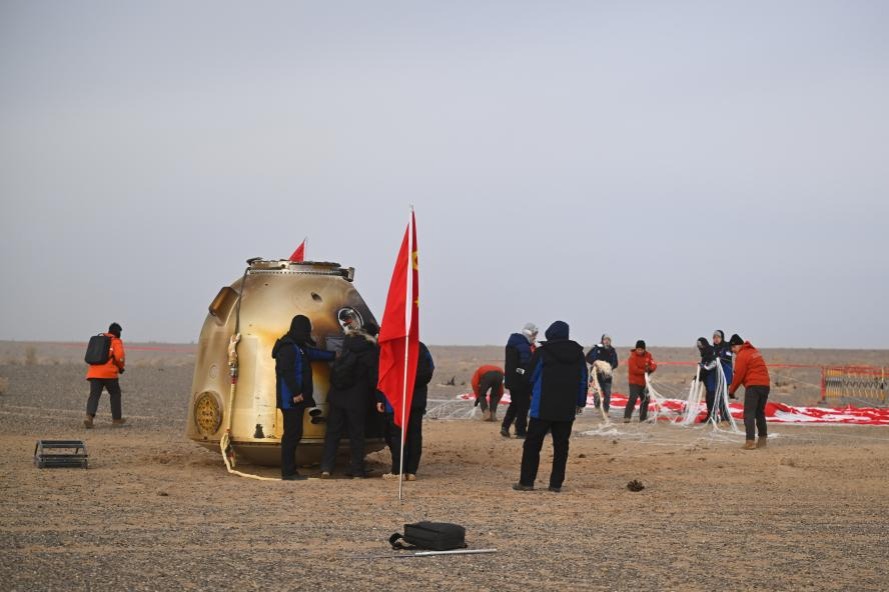Relocation yields sackful of challenges

Chinese firm's move to Egypt has unanticipated difficulties, but some advantages
Chen Qingkai's somber demeanor and tone contrasts with the frenetic pace in his workshop, where woven polyester bags are being made.
Far from Wenzhou, Zhejiang province, where his father and uncle set up the business 26 years ago, Chen is talking to China Daily near the seaport city of Suez in northeastern Egypt. It was here that Chen moved his operations three years ago as rising labor costs in China forced him to look at other options.
| Employees at the factory of Nile Group Plastic Industry, which makes Nile River brand woven polyester bags in Egypt. Photos by Du Xiaoying / China Daily |
However, that move, rather than wiping away his worries, seems to have loaded him down with many more in what he saw as "the continent of hope".
"Were it not for possessing advanced manufacturing methods, I would have gone out of business by now," he says, declining to disclose the company's financial details.
His aim was to turn the company, Nile Group Plastic Industry, into a global business, and he now runs the largest factory making woven polyester bags, branded Nile River, in an economic zone founded by a Chinese group 10 years ago.

Egyptian flour mills and chemical fertilizer factories in the country are his biggest customers, and about 30 percent of the bags go to Lebanon, Sudan and Libya.
As Chen began pondering whether to move from Wenzhou, western China, Southeast Asia and Africa were three options, he says. Wages in western China were about 30 percent lower than in the country's coastal areas, and the gap was shrinking quickly.
Part of his reckoning was that the labor forces of Cambodia, Laos and Vietnam are much smaller than that of Africa, and Southeast Asia is far from the largest Western markets. Poor infrastructure in the region was another consideration.
Africa, on the other hand, has 1 billion people whose wages are lower than those of inland China, and the continent, apart from being a huge market itself, is closer to the Middle East, Europe and North America, and is rich in cheap industrial resources.
"The geographical position, easy access to markets and cheap labor were highly attractive," Chen says.
The rub for Chen is that the cost savings in labor are not as great as he had imagined.
"Labor laws here are more strictly enforced than in Wenzhou, and local workers want more than Chinese workers."
Chen says he provides comfortable accommodation for male workers at his factory and hires buses to transport women between work and home to ensure safety. He also employs an Egyptian chef to cook for his workers, charging them about $3.50 a meal, "which saves them money with lunch".
"I just want them to take home more money at the end of the month, because I know how hard they work."
Nevertheless, Chen is only too well aware of how much all this is costing him.
"My subsidies for their transport and dining, and my losses on holidays all add to production costs."
Several of the local workers vouched for the working conditions.

"Chen treats us like brothers, and we enjoy working here," one says.
Chen says he pays the workers according to how many bags they make, and a worker can earn about $300 a month. But such incentives can only go so far in Egypt, he says.
"Egyptians aren't like Chinese. They look at work differently; for them, making money is less important."
Chen says that his company's woven polyester assembly line is more advanced than any in China. Like many other entrepreneurs in China, he redesigned machinery imported from abroad in the 1980s, drawing on his experience in running the factory over many years.
"I am confident about my technological strengths," he says. "Know-how is also an important reason why I can still beat the competition in Egypt."
He has several technicians from China helping him maintain his assembly lines and training local workers.
"I don't just give people jobs. I want them to pick up new skills."
When he moved to Egypt, he brought with him 110 bag-making machines, but he could find only enough workers to operate 40 of them, and output from those is much lower than it was in China, he says.
"In China the factory runs 24 hours a day for 11 and a half months a year. Here it only runs during the day, for nine months in a year at most."
To help make ends meet, he has sold machinery to other Egyptian businesses, even if that means losing a technological edge over his rivals one day.
Egypt's political turmoil over the past several years has not helped, and he hopes stability returns soon.
"Then, I can find more workers," he says.
About 40 companies in Egypt make woven bags, but Chen says his advanced manufacturing methods have kept him ahead of the pack. His Nile River bags are more expensive than most of those of his competitors, but they have become renowned for their quality. The factory can not keep up with demand, he says, and he is now scouting for more workers to start using his 40 idle machines.
Chen says he is always on the hunt for ways to improve efficiency in his operations.
"If I stopped having new ideas, I would soon be weeded out. As a leader in the industry, if I want to beat the competition I must always think ahead and focus on changes in technology and in the marketplace. It is like sailing against the current."

To promote economic growth, many local governments in China offer preferential treatment to investors with land and tax, but Chen says that is not the case in Egypt. That, ironically, has him pondering the benefits of running the business in China again.
"If I moved my factory to somewhere in western China, such as Sichuan or Guizhou, local authorities would be very supportive of my business because I create many jobs."
Still, he says, "I think transparency and rule of law in Egyptian business are good for Chinese businesspeople. It helps them recalibrate their business models and practices to match international conventions and rules. In my case at least, that is a necessary step if I am to globalize my business."
Underlying Chen's confidence, too, is the helping hand of the Chinese government, which is prepared to invest in Africa to help improve the continent's infrastructure, providing a springboard for economic growth. Many Chinese state-owned enterprises are doing some of that heavy lifting, and Chinese industrial parks like the Suez Economic Zone are playing an indispensable role in helping private businesses find their feet.
When Premier Li Keqiang was in Africa in May, he said more labor-intensive industries would move from China to Africa, and analysts have predicted that the expansion of Chinese businesses in the continent will become better coordinated and efficient.
Zhang Xiaobo, an economist with Peking University, says: "Labor-intensive industries went from the United States to Japan in the 1950s, and Chinese Taiwan and South Korea in the 1960s, and the Chinese mainland in 1980s."
Sino-Africa trade hit $210 billion last year, 2,000 times what it was in the 1960s. China's direct investment in Africa has risen to $25 billion from a low level several years ago, and China has been Africa's largest trade partner for the past five years.
"Premier Li's visit in May sends out a clear signal that despite the current difficulties in Africa, it will become one of the most important destinations for Chinese industries," Zhang says. "Industrial transformation is an irreversible historical trend."
However, businesspeople like Chen are finding that industrial transformation, including setting up shop in places like Africa, comes with many challenges.
duxiaoying1@chinadaily.com.cn
(China Daily Africa Weekly 09/05/2014 page20)
Today's Top News
- China reports 5% GDP growth in 2025
- Return capsule of Shenzhou XX safely returns to Earth
- Sanya rises as magnet for Russian tourists
- China's steady opening-up for Asia-Pacific economic growth
- Blueprint seen as a boon for entire world
- 'Kill line' an inevitable outcome of US system






























